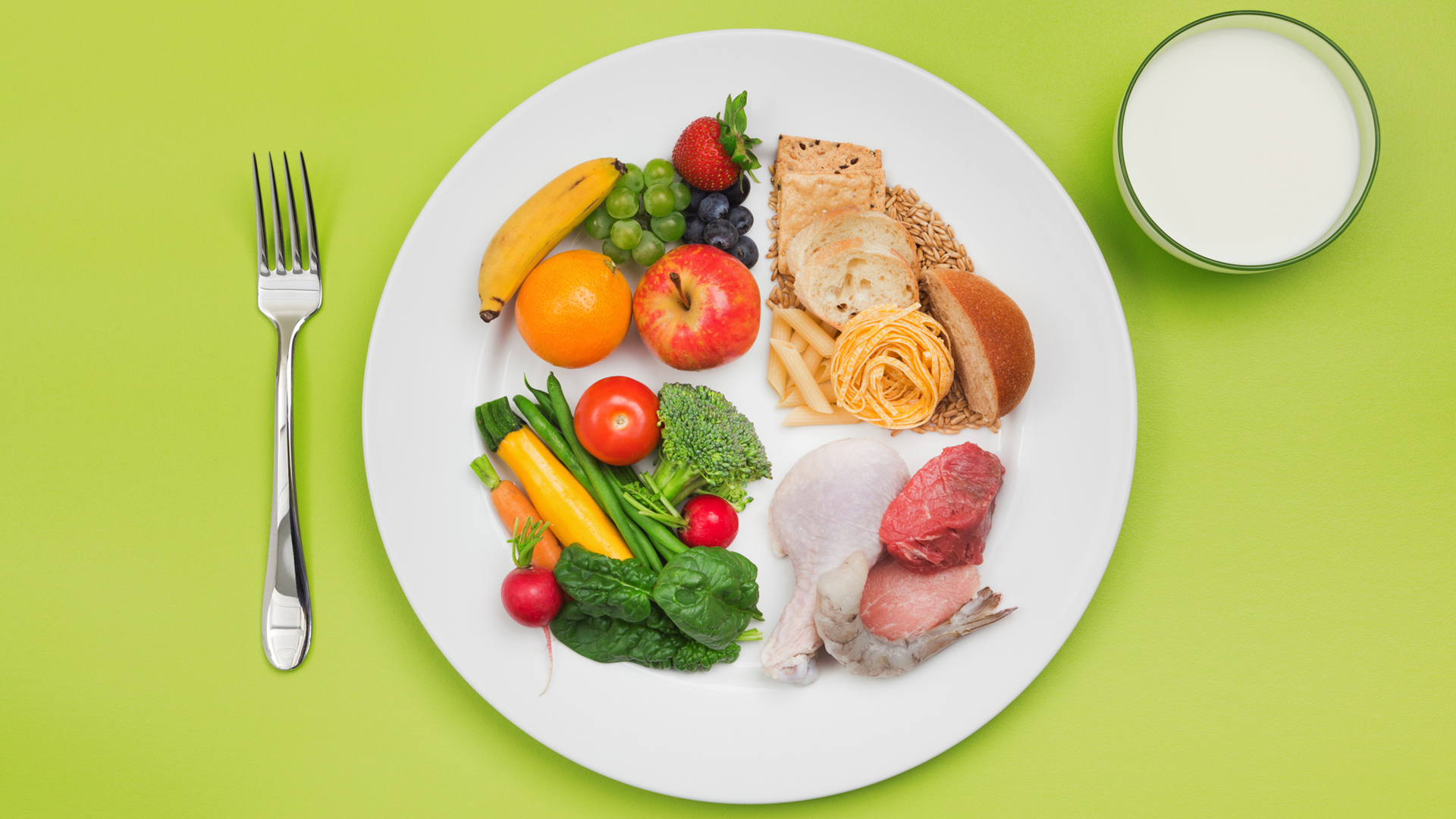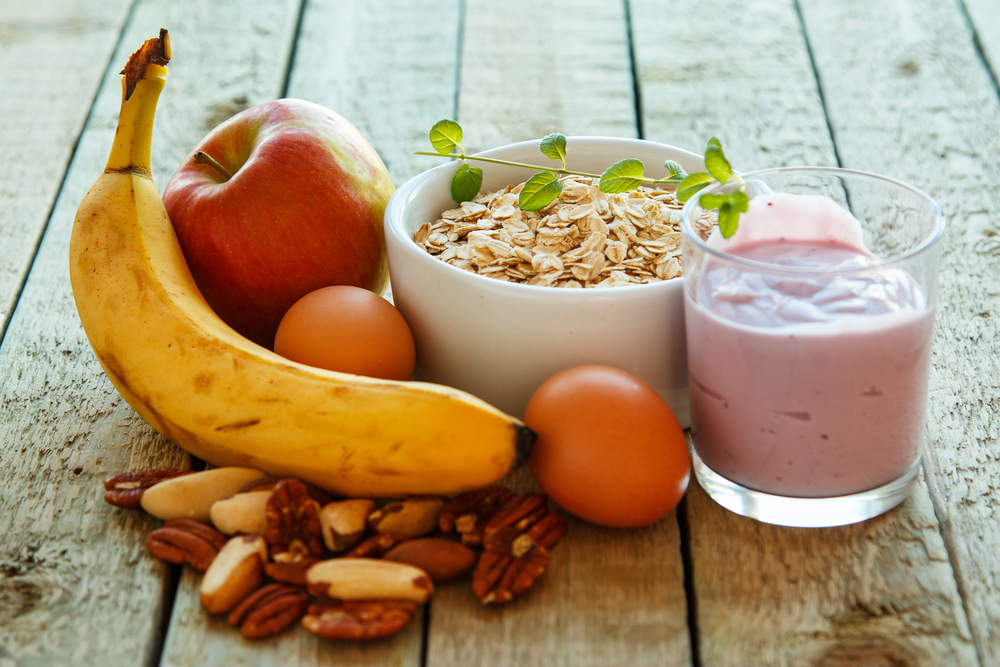Why a balanced diet is important for your health
Wondering why a balanced diet is important? These nutritionists weigh in

Get the world’s most fascinating discoveries delivered straight to your inbox.
You are now subscribed
Your newsletter sign-up was successful
Want to add more newsletters?

Delivered Daily
Daily Newsletter
Sign up for the latest discoveries, groundbreaking research and fascinating breakthroughs that impact you and the wider world direct to your inbox.

Once a week
Life's Little Mysteries
Feed your curiosity with an exclusive mystery every week, solved with science and delivered direct to your inbox before it's seen anywhere else.

Once a week
How It Works
Sign up to our free science & technology newsletter for your weekly fix of fascinating articles, quick quizzes, amazing images, and more

Delivered daily
Space.com Newsletter
Breaking space news, the latest updates on rocket launches, skywatching events and more!

Once a month
Watch This Space
Sign up to our monthly entertainment newsletter to keep up with all our coverage of the latest sci-fi and space movies, tv shows, games and books.

Once a week
Night Sky This Week
Discover this week's must-see night sky events, moon phases, and stunning astrophotos. Sign up for our skywatching newsletter and explore the universe with us!
Join the club
Get full access to premium articles, exclusive features and a growing list of member rewards.
You may be wondering why a balanced diet is important. The simple answer is eating a healthy, balanced diet is a vital part of maintaining good health and helping you to feel your best. While some groups of people, such as athletes, may require additional support by way of the best protein powders and the best protein bars to fuel muscle growth, the majority of us can get everything we need by ensuring we’re eating a healthy and varied range of foods.
A balanced diet supplies the fuel your body needs to work effectively. Without balanced nutrition, your body is more prone to illnesses such as heart disease, diabetes, and cancer. Eating a variety of foods and consuming less salt, sugars, and saturated fats are essential to ensure your body functions at its best.
If your diet isn’t balanced and you consume foods that don’t provide enough nutritional value, your nutrient levels will start to decline. Research has found that 31% of the U.S. population is at risk of at least one vitamin deficiency. There are many dangers of a nutrient deficiency, including digestion problems, anemia, and skin problems.
In this article, you will learn about what you need for a balanced diet, why a balanced diet is so important, and tips for ensuring you meet your nutritional needs every day.
What is a balanced diet?
“A balanced diet ideally includes five food groups,” Isabel Maples, registered dietitian, and spokesperson for the Academy of Nutrition and Dietetics told Live Science. “The individual food groups each supply certain groups of nutrients. One group is not more important than the other - each provides key vitamins, minerals, fiber, and calories. But when one food group is eaten less, then it becomes the weakest link in maintaining balance. More focus on it might help bring the diet back into balance.”
The Dietary Guidelines for Americans, set out by the U.S Department of Agriculture (USDA) recommend nutrient-dense foods that provide vitamins, minerals, and other health-promoting components and have no or little added sugars, saturated fat, and sodium.

The core elements that make up a healthy dietary pattern include:
Get the world’s most fascinating discoveries delivered straight to your inbox.
- Vegetables of all types - dark green; red and orange; beans, peas, and lentils; starchy; and other vegetables.
- Fruits, especially whole fruit (rather than fruit juices).
- Grains, at least half of which are whole grain.
- Dairy, including fat-free or low-fat milk, yogurt, and cheese, and/or lactose-free versions and fortified soy beverages and yogurt as alternatives.
- Protein foods, including lean meats, poultry, and eggs; seafood; beans, peas, and lentils; and nuts, seeds, and soy products.
- Oils, including vegetable oils and oils in food, such as seafood and nuts.
Nutritionist Lamorna Hollingsworth says variety is key when it comes to eating fruit and vegetables. “Go for at least five portions of fruit and vegetables a day,” she says. “Fresh, frozen, canned, and dried all count. Eating a diverse range of plant-based foods is great news for our gut health and microbiome which thrives best when we consume a wide variety - aiming for 30+ different plant-based foods a week is a great target.”
The dietary guidelines also advise limiting foods and beverages higher in added sugars, saturated fat, and sodium and limiting alcoholic beverages. The recommended limits are:
- Added sugars: Less than 10% of your calories per day.
- Saturated fat: Less than 10% of your calories per day.
- Sodium: Less than 2,300 milligrams per day (and even less for children younger than age 14).
- Alcoholic beverages: Adults of legal drinking age can choose not to drink, or to drink in moderation by limiting intake to two drinks or less in a day for men and one drink or less in a day for women when alcohol is consumed. Drinking less is better for health than drinking more.
Why is eating a balanced diet so important?
The foods we eat have a profound impact on physical and mental health. The scientific connection between food and health is well documented, with substantial evidence showing that following a healthy diet can help people achieve and maintain good health and reduce the risk of chronic diseases.
A balanced diet supplies the nutrients your body needs to work well. Without balanced nutrition, your body is more prone to disease, infection, and fatigue.
According to the Center for Science in the Public Interest, four of the top 10 leading causes of death in the United States - heart disease, cancer, stroke, and type 2 diabetes - are directly linked to diet.

Some evidence suggests a close relationship between diet and mood. In 2016, research published in the journal Appetite found that diets with a high glycemic load may trigger increased symptoms of depression and fatigue. Foods with a high glycemic load include many refined carbohydrates, often found in soft drinks, cakes, white bread, and biscuits. Vegetables, whole fruit, and whole grains have a lower glycemic load.
A healthy diet may help maintain brain health too. A 2015 study published in the journal of Neurology, Psychiatry and Brain Research identified nutrients and foods that protect against cognitive decline and dementia. The researchers found the following beneficial - vitamin D, vitamin C, and vitamin E, omega-3 fatty acids, and fish.
Tips for having a balanced diet everyday
A healthy diet will combine all the recommended nutrients and food groups mentioned, but you need to balance them too.
The plate method is a handy way to remember how much of each food group to eat. Maples endorses the USDA’s 'ChooseMyPlate' initiative, which recommends:
- Filling half your plate with fruits and vegetables.
- Filling just over one quarter with grains.
- Filling just under one quarter with protein foods.
- Adding dairy on the side (or a non-dairy replacement).
But individual needs will vary, so the USDA also provides an interactive tool, 'MyPlate Plan', where you can enter your own details to determine your personal needs.
Hollingsworth believes that proper balance comes when you view food on a spectrum, as labeling foods ‘good’ or ‘bad’ may lead to unhealthy restrictive habits. She told LiveScience: “It could be argued that a balanced diet that includes healthy and occasional not-so-healthy foods is more important than aiming for perfection with all our food choices.
“Taking this approach allows individuals to fuel their bodies with healthy options but also provides a positive place for our mental health too. Having this kind of mindset prevents guilt that could be felt upon eating the occasional unhealthy food.”
References
Bird, J., Murphy, R., Ciappio, E., & McBurney, M. (2017). Risk of Deficiency in Multiple Concurrent Micronutrients in Children and Adults in the United States. Nutrients, 9(7), 655. https://www.ncbi.nlm.nih.gov/pmc/articles/PMC5537775/
Breymeyer, K. L., Lampe, J. W., McGregor, B. A., & Neuhouser, M. L. (2016). Subjective mood and energy levels of healthy weight and overweight/obese healthy adults on high-and low-glycemic load experimental diets. Appetite, 107, 253–259. https://www.sciencedirect.com/science/article/abs/pii/S0195666316303221
Strasser, B., & Fuchs, D. (2015). Role of physical activity and diet on mood, behavior, and cognition. Neurology, Psychiatry and Brain Research, 21(3), 118–126. http://www.barbara-strasser.at/wp-content/uploads/Neurology-Psychiatry-and-Brain-Research-2015.pdf
U.S. Department of Agriculture. (2020). Dietary Guidelines for Americans 2020 - 2025. https://www.dietaryguidelines.gov/sites/default/files/2020-12/Dietary_Guidelines_for_Americans_2020-2025.pdf
Why Good Nutrition is Important. (2018, May 17). Center for Science in the Public Interest. Retrieved April 14, 2022, from https://www.cspinet.org/eating-healthy/why-good-nutrition-important
Catherine is a freelance journalist writing across titles such as Verywell Health, Healthline, The Daily Telegraph, Refinery29, Elle, and Vogue. She specializes in content covering health, fitness, wellness, and culture. Catherine worked in healthcare administration and communications for a decade, producing easy-to-understand patient information for a wide variety of health conditions.
 Live Science Plus
Live Science Plus











